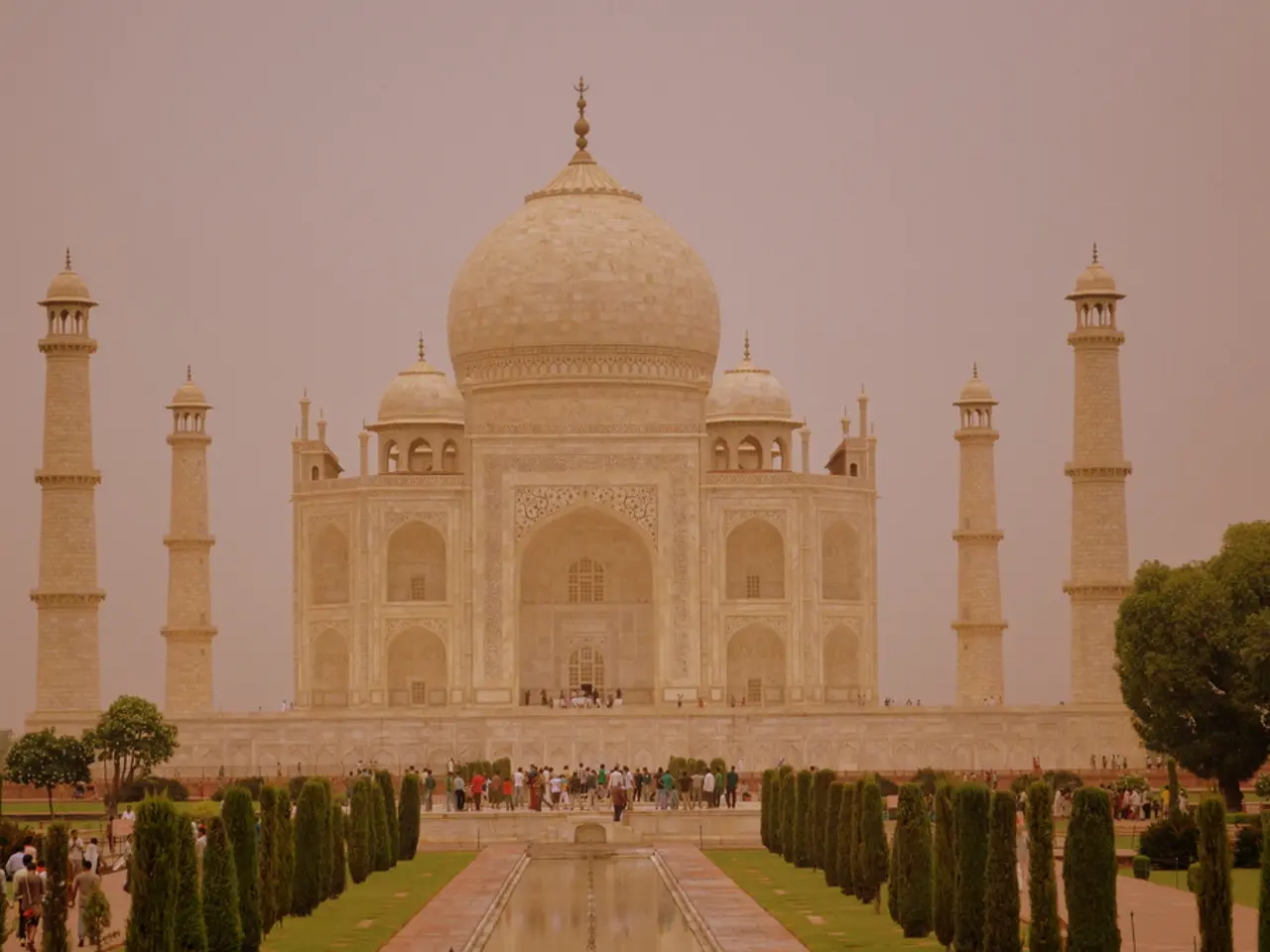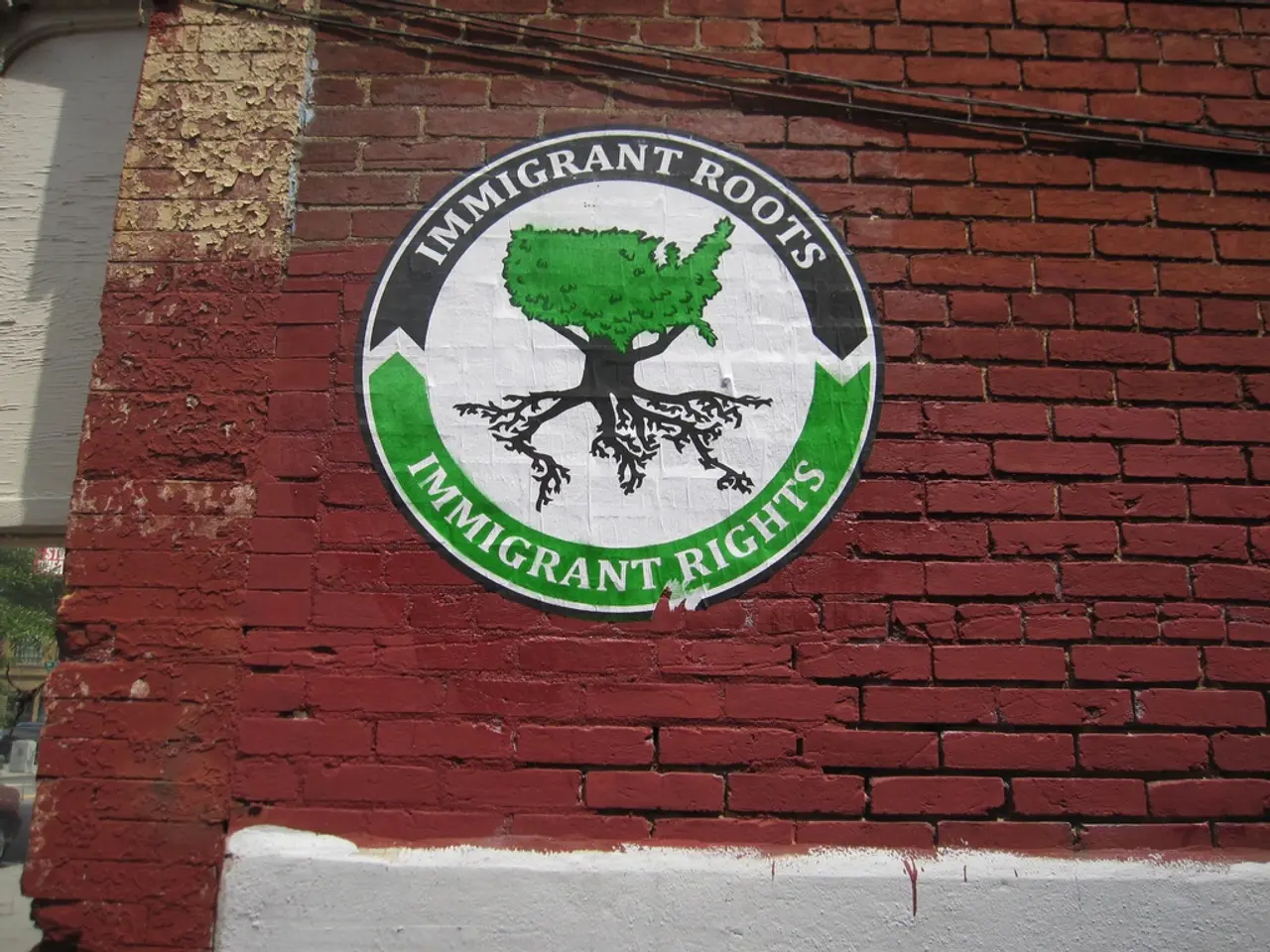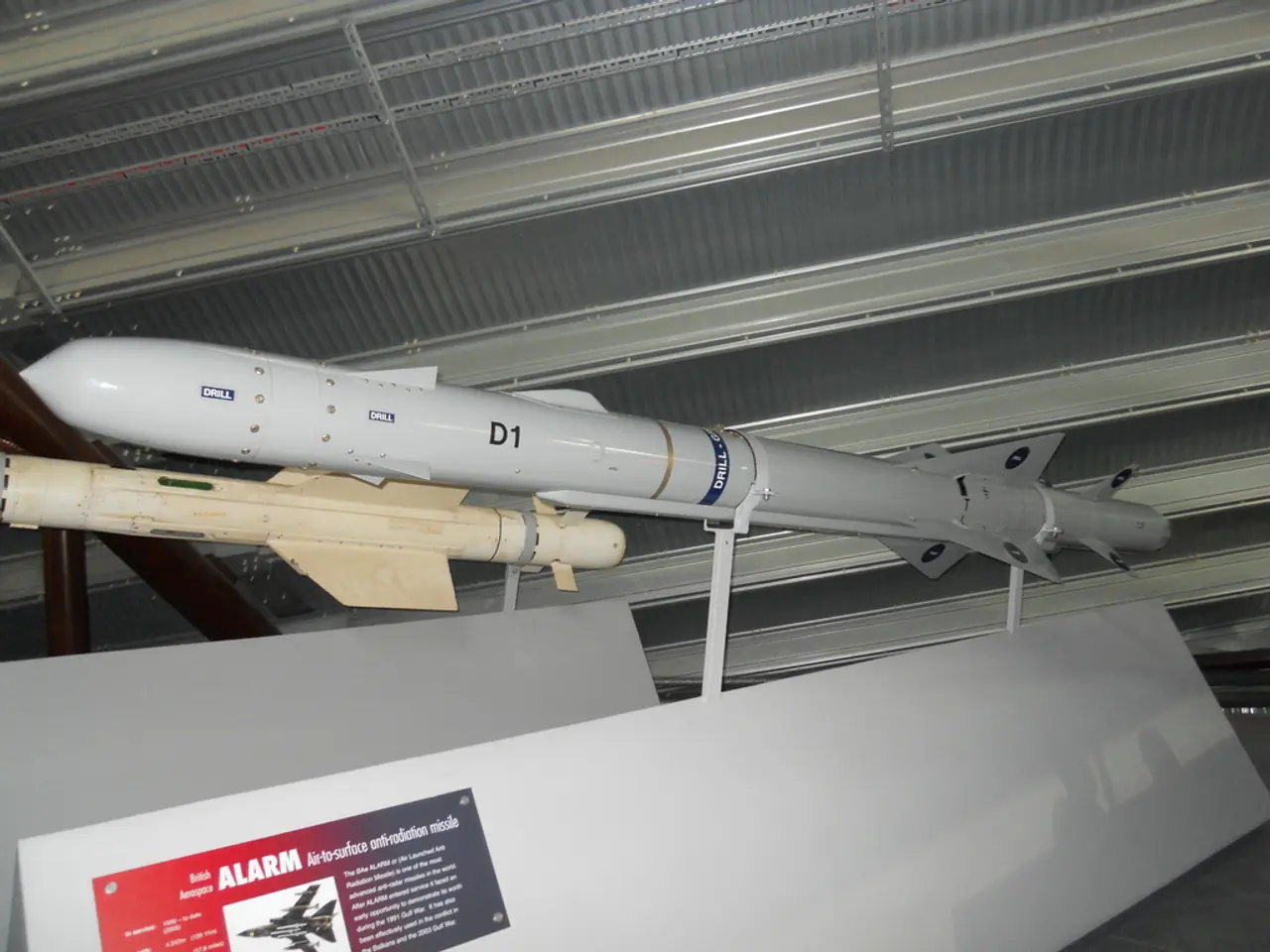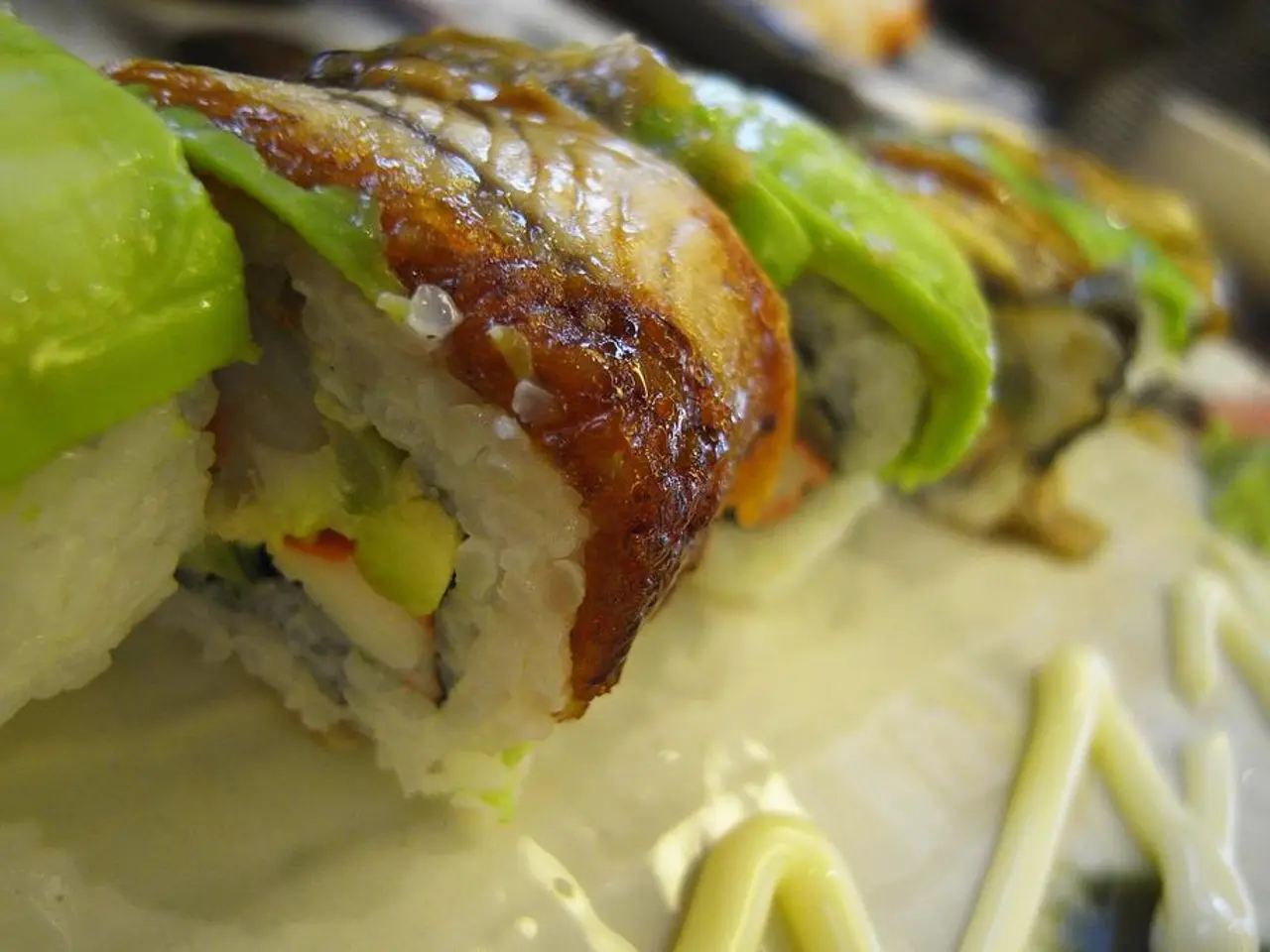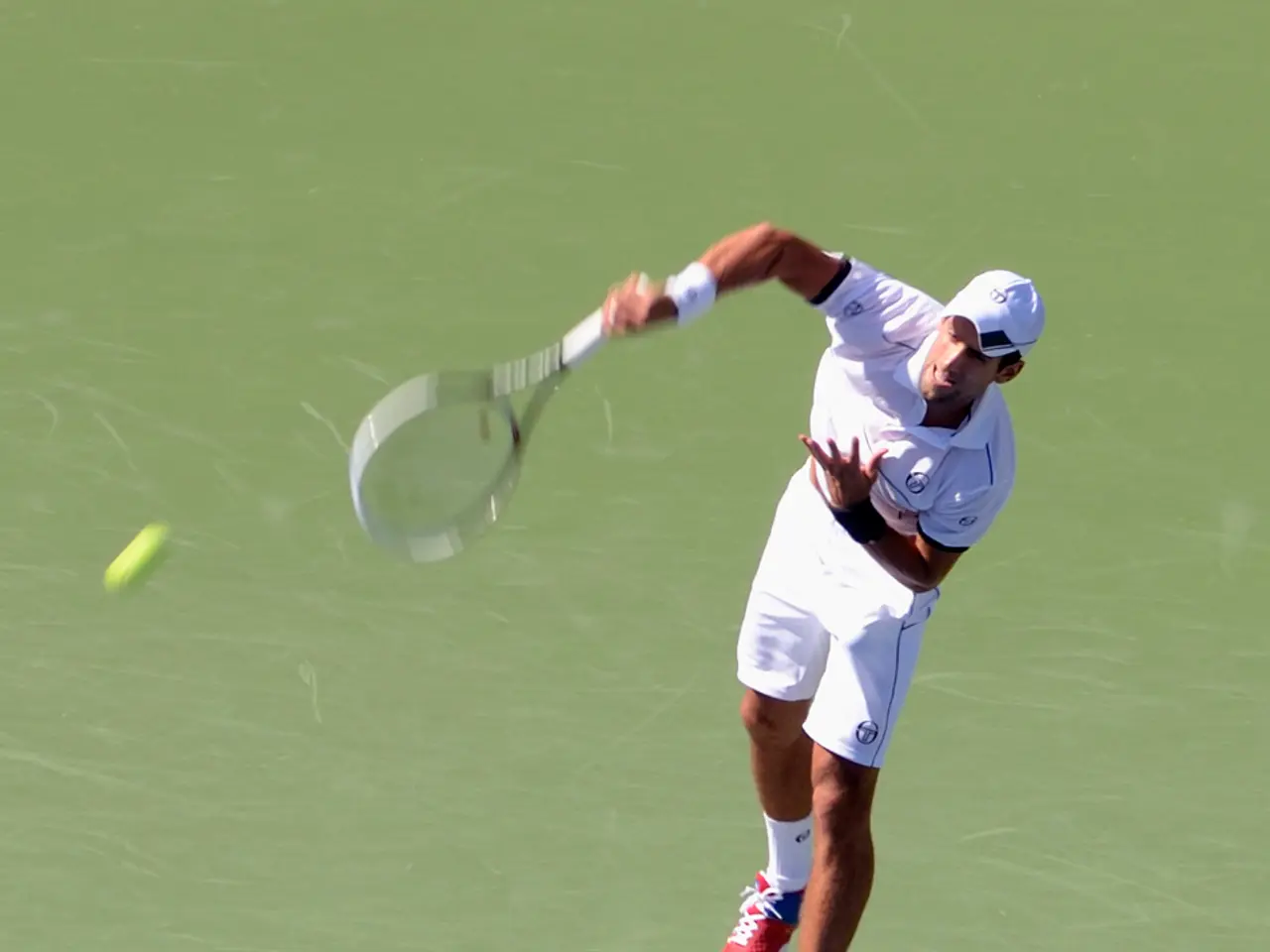Prime Minister Modi Advocates for Domestic Products Promotion Following Trump's Proposed 25% Tariff
In a surprising turn of events, the Trump administration announced a 25% tariff on Indian exports, labeling India, alongside Russia, as "dead economies." The specific Indian exports affected include shrimp, jewellery, metals, engineering goods, and auto components, totaling approximately $20 billion.
In response, the Indian government, under the leadership of Prime Minister Narendra Modi, has taken a proactive approach to protect its national interests and economic security. The government is formulating a Rs 20,000 crore (approximately $2.5 billion) Export Promotion Mission, planned for launch by September. This strategy aims to shield exporters from international trade volatility and consists of initiatives to ease export credit access, address non-tariff barriers, strengthen India’s global brand recognition, enhance e-commerce and warehousing infrastructure, and facilitate trade.
The government is also focusing on MSME exporters by providing loans with minimal collateral requirements. In a strong condemnation of the tariffs, the government has pledged to take necessary steps to safeguard national interests and economic security. It has also criticized the US and EU for continuing imports from Russia, highlighting the inconsistency in their trade policies.
Prime Minister Modi has urged citizens to embrace 'swadeshi' (locally made) products, positioning domestic production and consumption as both an economic and nationalistic imperative. He emphasized that the feeling of 'swadeshi' in every action will define India's future and will be a true tribute to Mahatma Gandhi. Modi requested the business world and shopkeepers to sell only local products during global uncertainty, stating it as true service to the country.
The Indian government's response to the US tariffs combines financial support, regulatory facilitation, brand building, and diplomatic pushback to protect and promote national export interests. The government is actively seeking feedback from stakeholders, including exporters and industry, on their assessment of the current situation.
In a bid to strengthen India's global brand recognition, the government is engaging with all stakeholders, including exporters and industry, to take feedback on the situation and protect the welfare of farmers, workers, entrepreneurs, exporters, MSMEs, and all sections of industry. Commerce Minister Piyush Goyal confirmed ongoing bilateral trade negotiations with the US and reiterated the government's commitment to shielding Indian stakeholders from adverse external impacts.
PM Modi underlined the growing uncertainty in the global economy and emphasized the need for economic self-reliance in the face of global instability. He called for a renewed focus on the 'Make in India' initiative and made a special appeal to the business community and retailers to prioritize local products. Modi stressed that India must safeguard its economic priorities.
Sources: [1] The Economic Times [2] The Hindu BusinessLine
In light of the US tariffs on Indian exports, the Indian government, under Prime Minister Modi, is taking proactive steps to protect the economy and national interests. This includes formulating a Rs 20,000 crore Export Promotion Mission, criticizing trade policies of the US and EU, urging citizens to support 'swadeshi' products, and engaging with stakeholders to strengthen India's global brand recognition. (economy, politics)
In response to the tariffs, the Indian government is not only providing financial support and regulatory facilitation but also emphasizing the importance of economic self-reliance and the 'Make in India' initiative. They are also engaging in bilateral trade negotiations with the US and seeking feedback from stakeholders to protect the welfare of various sectors, including farmers, workers, entrepreneurs, and MSMEs. (general-news)
